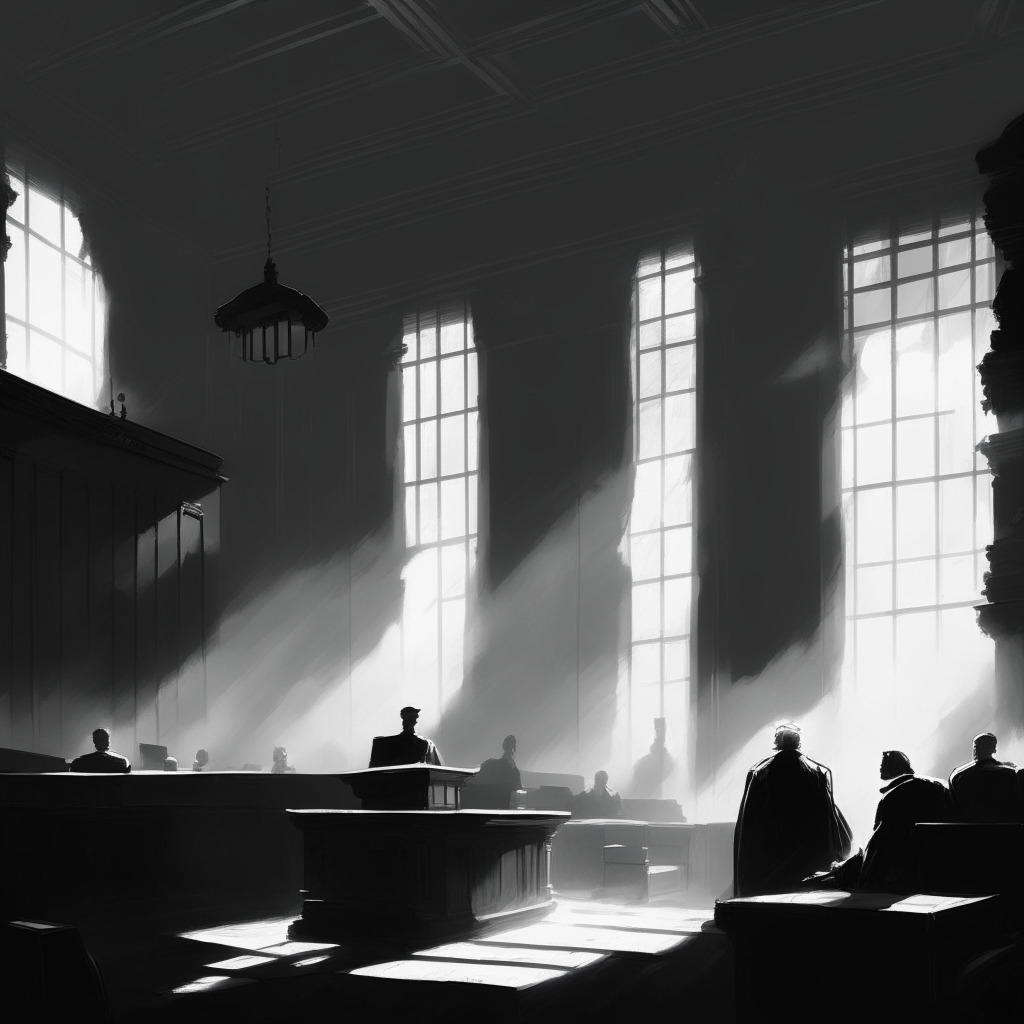Within the world of cryptocurrencies, few events have sent seismic shockwaves like the unfolding revelations involving Sam Bankman-Fried, the now-disgraced crypto exchange founder, better known for his contributions to the digital asset company, FTX.
Lurking beneath the surface of this crypto heavyweight, according to testimony from a former associate, Adam Yedidia, was a mounting debt pile and concerning financial practices. Yedidia, who had shared educational and working environments with Bankman-Fried, alleged in a court testimony that at the height of their financial issues, Bankman-Fried candidly stated, “We were bulletproof last year; we’re not bulletproof this year.”
The spiral of uncertainty began when the liability owed to customers by Alameda Research, FTX’s sister company, grew over $8 billion. These financial concerns speak volumes about the precarious state of regulations in the crypto space. For the vast number of traders and investors leaning on the veracity of the company, this paints a rather unsettling image.
Conversations concerning Bankman-Fried’s attempts to raise funds from Saudi Arabia and the United Arab Emirates in a bid to buoy his faltering exchange lend further intrigue. The use of Signal, an encrypted messaging service, by the company’s employees further fuels suspicion concerning behind-scene practices.
Coupled with the revelation that customer funds were used to repay creditors, this case serves as an alarming wake-up call to the need for increased regulatory oversight in the crypto environment.
On the other side of the coin, the defence for Bankman-Fried struggles significantly, with over 20 objections from the prosecution during cross-examination. Yet, one could raise an eyebrow at the notion of attacking a pioneering establishment such as FTX, which has been instrumental in shaping the crypto landscape. Is the regulatory environment mature enough to handle these complexities in an ever-evolving crypto ecosystem?
Furthermore, the case’s prominent witnesses, including former roommates and associates of Bankman-Fried, shed light on personal matters instead of solely focusing on the alleged financial misdemeanors. Could these testimonies potentially sway the case in a personal, rather than professional direction?
Despite the pessimistic outlook, with Pew Research Centre stating that less than 1% of federal criminal defendants were acquitted in 2022, the discourse around this case undeniably institutes a unique intersection between law enforcement and crypto regulation.
As the various testimonies continue to unspool, the crypto community watches with bated breath. This case, with its numerous twists, underscores the enormous need for robust regulation in the wild west of the crypto world. Integration of regulation in this space and the cost of overseeing such measures, however, remains a conundrum to be tackled.
Source: Cryptonews




